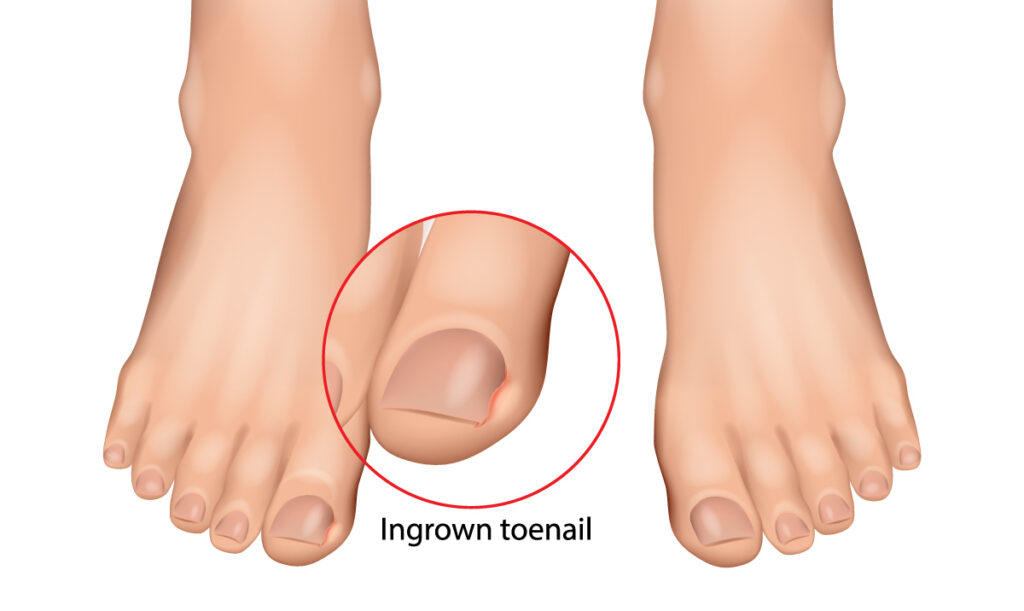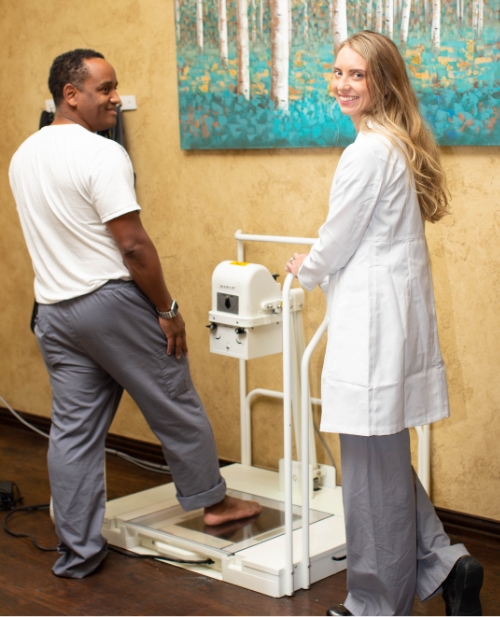
Board Certified Dr. Rachel Verville assists Frisco patients with a variety of foot and ankle disorders, including gout, heel pain, and sprains. Ingrown toenail patients are among the most common cases, as this condition is easy to develop. Luckily, early intervention can reduce most of the problems associated with ingrown toenails.
Do I Have an Ingrown Toenail?
While we recommend a diagnosis from a licensed podiatrist, there are some common symptoms that Frisco patients present. These include:
- Skin that grows beyond the edges of the toenail.
- Skin that is swollen or sensitive to the touch.
- Pus around the ingrown nail.
These symptoms can worsen the longer the condition is not treated. Ingrown toenail pain can grow over time to a point where it is necessary to seek medical treatment.
What Causes Ingrown Toenail?
Ingrown toenails may be hereditary and if your mother or father has had the condition, it’s more likely that you will experience problems sometime in your life as well.
Outside of your genetic disposition, you may not be clipping your toenails as carefully or as often as you should. If you cut toenails too close to the skin or do not cut them straight across, you can develop an ingrown toenail. As with most foot-related conditions, symptoms may occur or worsen if feet are not kept clean and dry.
What Should I Do about an Ingrown Toenail?
The first and most important thing that Dr. Verville tells patients is not to ignore the symptoms. Some people don’t take ingrown toenails seriously because toes are often overlooked parts of the body. It’s easy to forget that much of our strength and stability comes from a solid foundation: your own two feet. Even a small measure of discomfort can impact your daily life and limit your activity.
Once you have scheduled your appointment and arrived at RNV Podiatry, Dr. Verville will:
- Conduct an examination.
- Ask you some questions about your symptoms.
- Possibly collect a small sample to test for infection.
Waiting for treatment can worsen your ingrown toenail, leading to infections that require surgical removal of the toenail. When caught early treatment will involve lower-impact options such as:
- Bandaging
- Soaking
- Medication
As with all patients, Dr. Verville will explain your options, answer your questions, and work with you to help you get the right treatment.
If you live in Frisco and think you have an ingrown toenail, call RNV Podiatry at (214) 385-8822 or schedule an appointment on our site.





